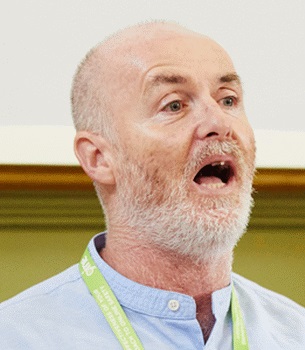Faith schools – Is it more ‘tolerant’ to defend them or ban them?

Kevin Rooney contemplates whether the ‘tolerant’ thing to do would be to restrict or defend the faith schools model…

- by Kevin Rooney

“What are schools for?” my teacher friend Jenny once asked me rhetorically, before going on to answer her own question. “Schools are about conveying a body of knowledge to the next generation. Faith isn’t knowledge. Belief isn’t knowledge. So faith schools should be banned.”
She told me this knowing, of course, that I, her fellow teacher, am both a Catholic and a defender of Catholic schools. I found her answer reductive, unmediated and illiberal – and like any good mate, I told her so.
Education and socialisation
When thinking about the societal role performed by schools, I find it helpful to distinguish between education and socialisation. Passing on the best that has been thought and said to the next generation, Mathew Arnold-style, is noble. But schooling concerns socialisation as well.
For Catholic parents, the school is there to assist them in the ‘character formation’ of their child. A Catholic education ideally involves excellent academic education, inculcation of an intellectual curiosity and a commitment to assisting them in raising their child in the Catholic faith and its associated values.
Parents wanting this socialisation process to reflect their deeply held religious beliefs is, in my view, entirely appropriate. That’s why I support faith schools. To argue against this is to argue against the appropriateness of parents seeking to influence their own children, and to attack parental autonomy.
Unfortunately, a growing number of pressure groups, teaching union representatives and politicians seem prepared to do just that.
A commonly advanced justification for such attacks is the notion that children require ‘rescuing’ from the clutches of religious indoctrination.
I used to just smile wryly at comments from opponents of Catholic schools who drew silly comparisons with fantastical cults. However, such comparisons are becoming increasingly common.
A curious paradox
There is a curious paradox currently at play regarding faith schools. On the one hand, respect for a plurality of beliefs and values is a hallmark of multiculturalism. But this respect for ‘diversity’ seems to rapidly fade when religious schools are raised.
Research carried out by Liverpool University on Alliance Party of Northern Ireland members last month is a case in point. The party is famed for its non-sectarianism and moderate liberalism.
The headline-grabber was a significant rise in support among its membership for a united Ireland. But in the same survey, two thirds also said that single-faith schools should be banned.
In practice, almost all schools in Northern Ireland are faith schools – and yet, 68% of those belonging to this party that prides itself on its tolerance and liberalism believe that these schools shouldn’t be permitted. It begs the question – how should one define ‘tolerance’ and ‘liberalism’ today?
Middle class prejudice
A common criticism of Catholic schools in NI is that they promote division and sectarianism. Such accusations may go down well at polite dinner parties, but they’re untrue.
As Jon Tonge, author of the aforementioned Alliance Party research later commented, “Blaming segregated education for the sectarianism that often prevails in Northern Ireland is convenient, but intellectually lazy.”
I’d say it’s more than laziness; it’s a middle class prejudice that goes largely unchallenged. Tonge went on to explain that the real source of division in NI isn’t religious schooling, but where one tends to stand on the constitutional question of whether there should be a United Kingdom or United Ireland.
Put simply, if religious schools were to suddenly vanish from NI tomorrow, the extent of division there would not decrease one iota.
Real secularism
In England, an assortment of groups spanning militant atheists, humanists, secularists and liberals continue to campaign for the closure of all faith schools in the long term, and to inhibit their school admissions policies in the shorter term. These groups claim that selection on religious grounds is unfair, and discriminates against pupils and families of no religion.
It’s worth noting, however, that Catholic schools were providing an education to children long before the state ever took an interest. Indeed, there was once a time when these schools were even admired within left wing and liberal circles.
For generations, church schools were seen as co-creators of a healthy and tolerant society. As time has gone on, however, a growing portion of the left seem increasingly eager to attack and restrict faith schools’ operational freedom. In doing so, they deny parents the right to send their kids to the school of their family’s faith.
Yes, it’s true, religious schools do discriminate in their school admissions – yet real secularism isn’t defined by hostility to religion, but rather premised on keeping religious worship free from state interference.
The ‘correct’ values
Contingent on that freedom is the freedom of association. In other words, the right to discriminate in your choice of associates. For hundreds of years, the integrity of many different religious groups has operated on this basis.
Campaigners against Catholic schools will often maintain that they’re not against ‘religious schools’ per se, but in favour of fair admissions. These campaigners are fully aware, however, that a faith school prevented from discriminating on religious grounds would no longer be a faith school.
It’s worth emphasising that in the context of education, a ‘discriminatory policy’ is based not just on religious autonomy, but also on parental autonomy. Parents make choices over how they raise their children and with whom they want their children to associate.
If parents wish to raise their children in a religious faith, should they not have the right to send their child to the Jewish School, or the Catholic school? Or have we now reached the point where both parents and religious schools can’t be trusted to pass on the ‘correct’ values?
Conflicting interpretations
It’s worth reflecting on what we think the terms ‘liberalism’, ‘tolerance’ and ‘parental autonomy’ ought to mean today. Do parents have the right to socialise their child in a particular faith and send them to a faith school?
The liberal answer used to be yes, but is that still the case? Does ‘tolerance’ now require that we defend the right of parents to send their kids to the Catholic school or not?
With these conflicting interpretations on the table, the lines between tolerance and intolerance, liberalism and illiberalism seem to have become somewhat blurred. The great liberal philosopher Hannah Arendt, however, couldn’t have been clearer when she staked out her position on the issue:
“To force parents to send their kids to a certain school against their will means to deprive them of rights which clearly belong to them in all free societies – the private right over their children, and the social right to free association.”
As both a parent and a teacher, and as someone who believes in the value of pluralism and making space for people of all cultures and faiths in the public square, I’m with Hannah Arendt.
Are you?
Kevin Rooney is a teacher, author, and convenor of the Academy of Ideas Education Forum










